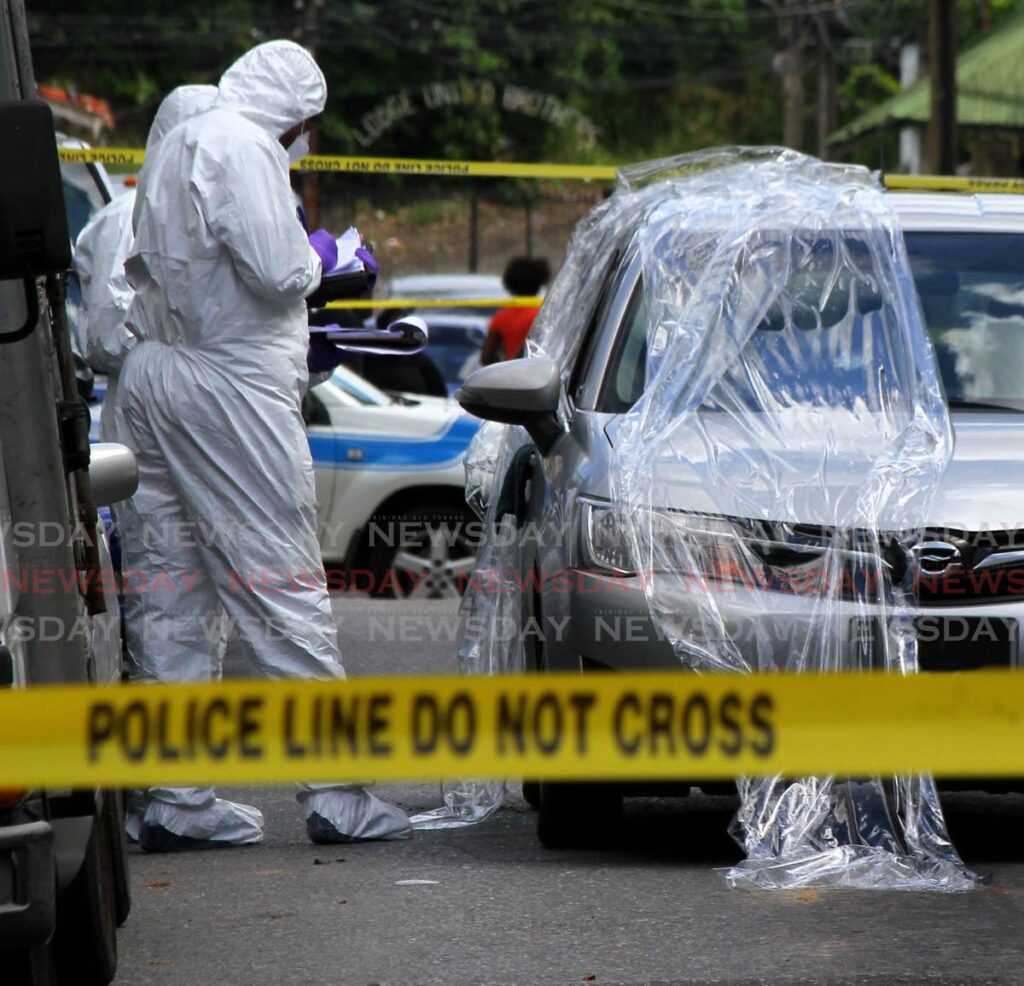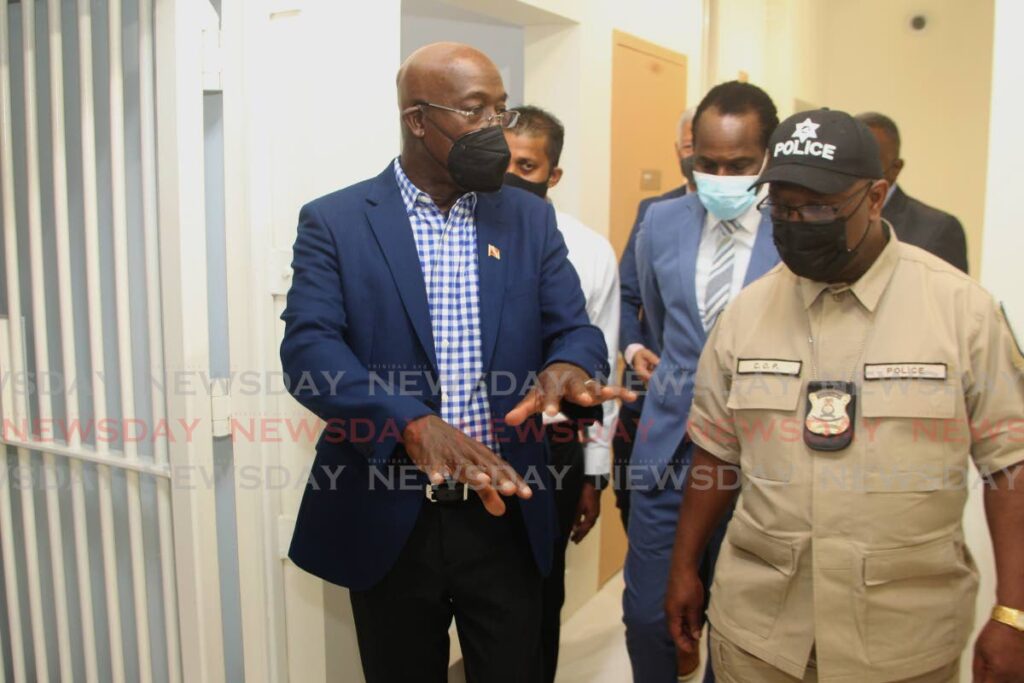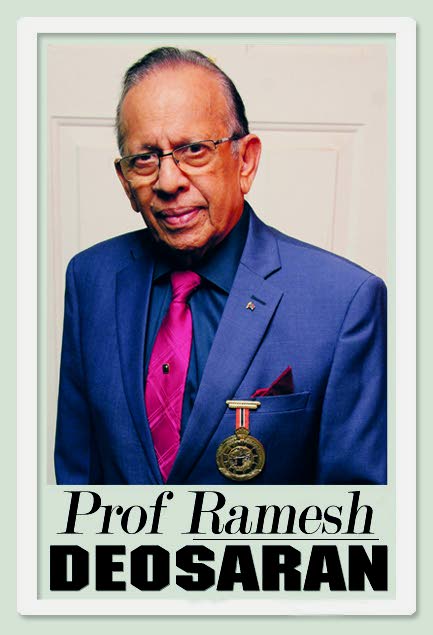Rowley’s crime challenges

As he prepares the agenda for his “national consultations on crime,” I respectfully urge Prime Minister Dr Keith Rowley to draw up a national emergency plan to decrease our skyrocketing murder rate while increasing the detection rate.
Together with this priority, Dr Rowley is well advised, given previous “national consultations,” to present a tentative, multi-sectoral anti-crime plan to trigger discussion at these consultations.
Going “empty-handed” didn’t and will not work well. While acknowledging the political situation, is it at all possible that such a national plan could have the participation of the Opposition?
I repeat, from a murder rate of 84 in 1990 with a detection rate of 70 per cent we now face a 2022 record murder rate of 605 and detection rate of 13 per cent. The historical circumstances, aberrations, etc, of our murder rate fluctuations need policy examination. The country, like the police service, need urgent help.
There is a revealing history behind the murder rates that relentlessly increased by over 600 per cent from 1990. Is there hope that lessons have been learnt? That the political culture has changed? One example emerges from former attorney general John Jeremie when he declared at a 2006 International Crime and Justice Conference sponsored by The UWI Centre for Criminology and Criminal Justice: “There must be a reckoning for those who have so continuously taunted us with crime even as they have misunderstood our patience for cowardice. We are resolved to do all that is necessary here.”

But murders increased.
Crime was of top-level public concern at that time. The entire business community pressured the Opposition to “unite” with the Government. As the then director of the centre, and after laying out the centre’s anti-crime research and policy programmes, I asked: “To what extent should citizens basic rights and freedoms be diminished to allow government to fight crime, and if crimes do not subsequently decrease, what should citizens do?” There are other examples of which I am sure Dr Rowley is aware.
The 2021 report of Strategic Services Agency, the country's premier spy agency, warned that the murder rate will increase, likely based on increased gang membership, illegal arms importation, security faults at the points of entry, etc.
“Gangs hire hitmen for free,” declared acting Police Commissioner McDonald Jacob in February 2022. Last May, he added: “Gangs now specialising in home invasions.” Over 630 home invasions occurred in both 2022 and 2021. Priest to politician call for “more prayers.”
In his New Year’s message, Dr Rowley promised “a renewed attempt at parliamentary intervention in support of work of agencies and institutions.” Lawful citizens may dutifully call for accountability, dismissals, elections etc, but how can the security agencies and institutions be quickly and effectively reformed to be “fit for purpose” in our dire situation?

Calling the society an “area of darkness,” Roman Catholic Archbishop Jason Gordon insisted that “change must come from the top” with a “national campaign for justice.” Regretting how “successive governments have broken the law in thousands of different ways,” he called for "a timely judiciary." How can the PM tolerate a government agency breaking the law, committing statutory neglect against poor citizens, then asking citizens for help?
When a government and its local agencies break the law, it puts the country in double jeopardy, heading for anomie, normlessness. It is a betrayal of public confidence and the Constitution itself. Too many civil suits are now against state agencies. This is the civic climate which Dr Rowley will likely face in his consultations; he must therefore be prepared to admit and convince. He faces a challenge of credibility.
Brazen criminal acts remain frightening. On January 12, it was “Gunmen chase, killed ‘Monk,’” “Six-year-old child shot dead.” “Bogus cops kidnap gardener,” “Alleged narcotics seller slain at Arima.” “Woman robbed outside St Benedict church,”
The age of alleged offenders, less than 30, and the apparent ease with which these crimes are committed say a lot. Men killed while sitting, standing, liming, drinking, sleeping, even running.
The PM promised at last week’s news conference: “It is for the Government to ensure that crime doesn’t pay and that people are protected and we work towards restoring some element of safety and security in this country.”
The society looks forward.


Comments
"Rowley’s crime challenges"